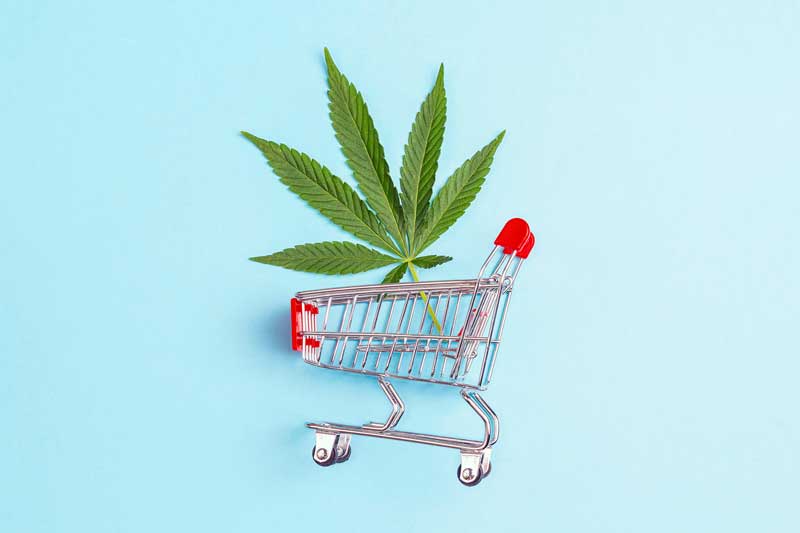Without a particular focus, it can be easy to get lost in data. It’s something that applies to any industry – the analytics process can be overwhelming. There are so many data points that even with the right tools in place collecting and producing reports, without a plan to use the data effectively, it can become meaningless.
Even deciding what to focus on can be overwhelming at times. Industry trends can give you an indication of your performance relative to others, and certain data points may be required for regulatory reporting. But for a cannabis business just starting out, the most important data point is what people want to buy. There are a few ways to get information about consumers, but it’s becoming easier and easier to get that information directly from the consumers themselves.
Real-time data
There are many examples of data-gathering from a variety of industries where people volunteer key information that can be used to drive decisions. In the world of higher education, some schools have used location trackers to help monitor attendance in classes. In some instances, apps have been used to monitor fitness, and in others, students were incentivized with rewards if they used tracking apps to prove their attendance at events like football games. The various colleges involved used the resulting information to help drive student success and the success of certain programs at the schools.
Of course, there are surveys that can provide direct customer feedback shortly after an encounter. That happens in the healthcare sphere, but healthcare also offers apps that can provide real-time information about a patient’s health. They can either track how a patient is responding to certain medications or alert a doctor or family member if there is a change in health status. Sometimes information is gathered from a group of people using the same medication in order to track the medication’s effectiveness. That has been how some prescribers have tracked the effectiveness of medical marijuana.
Cannabis tech
There are a number of ways for consumers to use technology to track their cannabis usage. One is by monitoring how certain products make people feel. Strainprint is an app partnered with Canada-based Aurora where users can record their experiences and figure out what products work best for them. Users record their symptoms before taking a cannabis product, and then the app sends a reminder to them to track how they felt after taking the product. The information is not only used to direct a customer to exactly what works for them, but the data as a whole is used anonymously to gather information on patient communities.
There are similar apps that track user preference. Users can keep notes on the thousands of different strains of recreational-use cannabis and save favorites, or just use the app as a reference. There are full strain descriptions, history, and reviews from cannabis experts and other users.

Actionable data
“User favorites” is one data point that will be helpful for cannabis businesses as well as cannabis users. If there is a wildly popular product on the app, it makes sense to sell that product. Similarly, there are ways for companies to track other customer behaviors. People who are looking for cannabis products that can impact their health and wellness often post on social media apps. They might be trying to find, for example, products that can help with sleep or with stress relief. Other users’ responses could provide important data for a cannabis company about what to stock.
Cannabis organizations use sales data to find out what products sell well and in what areas. They often use that data in evaluations of sales personnel in addition to finding out about customers. Many cannabis stores have loyalty programs in place which could help provide more specific information, including what consumers like about particular products. For the retailer, that could help inform decisions about stocking similar products. If that information is also shared with growers, it could also be used in their development decisions.
Cannabis companies don’t want to over-promise when it comes to health benefits. In that sense, there is only so much they can do with certain data points. When it comes to gathering data from consumers, privacy is always a concern. Similar to the other industries mentioned above, cannabis organizations need to be very clear about how they are gathering data and what they are using it for. In most cases, customers have the option whether or not to share information.
The exciting piece about cannabis data is that as it becomes legal in more and more states, there is more and more information coming in. There is some historical data because it has been established in some states for a long time, but in certain areas the data is very new. As more data comes in and the sample size grows, the types of insights businesses can get from the data are also going to grow. Having the right solution in place can help you get the most out of whatever data your organization decides to focus on.
- What Data Can Bring to California’s Investment in its Ports - July 25, 2024
- Unlocking the Power of Data in the Utilities Industry - July 18, 2024
- How Analytics Can Help Your Wholesale Nursery Grow - July 17, 2024





